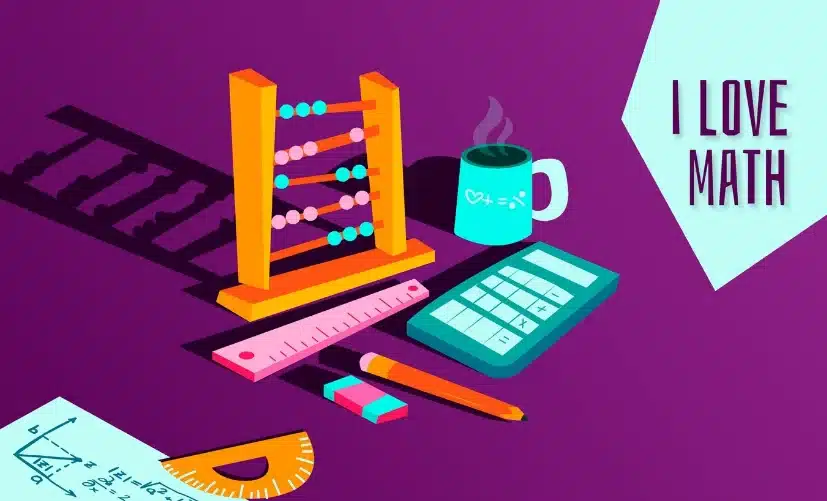Mathematics often seems like a daunting subject for many students, with its complex formulas and equations. Students, whether studying in schools in Nellore or other areas, often feel that mathematics is not a beneficial subject and will not help them in their future endeavors. However, they forget that it’s one of the most useful subjects for helping them in their day-to-day life. Beyond the classroom, the uses of maths in day to day life are numerous, from managing finances to cooking, shopping, and planning travel routes. Math plays a vital role in our day-to-day lives, often in ways we might not even realize.
Also Read: What are the 10 team building activities for students?
10 Ways You Can Use Mathematics in Daily Life in 2024
Let’s look at 10 practical uses of mathematics in your daily life or day-to-day activities, tailored specifically for students and kids.
1. Grocery Shopping
One of the most common applications of math is during grocery shopping. Students can use addition and subtraction to calculate the total cost of items, understand discounts and deals, and even compare prices per unit to make informed purchasing decisions. This allows students to apply maths in real-life situations and make informed decisions.
2. Cooking and Baking
Math is essential in the kitchen too! Students can apply fractions, ratios, and measurements to follow recipes accurately. Since baking requires meticulous portions in order to get the recipe just right, understanding measurements is crucial for cooking and baking delicious meals and treats and to get the best possible results.
3. Time Management
Learning to manage time effectively is a valuable skill for students. Math helps in scheduling daily activities, setting alarms, and understanding calendars and timetables. Students can use math to plan their study schedules and allocate time for various tasks efficiently. This gives students a sense of discipline and a structured timetable of a day which leads them to being a well-rounded individual.
4. Budgeting Finances
Whether saving pocket money or managing expenses, math plays a significant role in financial planning. Students can learn to budget by calculating income, expenses, and savings, helping them develop responsible money management skills from a young age. Inculcating this habit makes a student responsible and teaches them to spend their money carefully.
5. Sports and Games
Math is present in various sports and games, from calculating scores and statistics to understanding probabilities and strategies. Students can use math concepts like averages, percentages, and geometry to analyze game outcomes and make informed decisions during gameplay.
6. Travel Planning
Planning a trip involves math too! Students can use math to calculate distances, estimate travel time, and budget for expenses such as fuel costs and accommodation. Understanding basic mathematical concepts can make travel planning more organized and efficient.
7. Measurement and Construction
Math is fundamental in construction and DIY projects. Students can apply concepts like geometry and measurement to accurately measure dimensions, calculate areas and volumes, and understand blueprints. These skills are valuable for future careers in engineering, architecture, and design. It instills a sense of fascination and attention to detail in students which improves their peculiarity.
8. Technology and Coding
In today’s digital age, math is at the core of technology and coding. Students can learn programming languages like Python and Java, where math is essential for writing algorithms, solving problems, and developing software applications and games. Having a strong mathematical background gives students a good foundation for any career venture possible.
9. Health and Fitness
Math plays a role in monitoring health and fitness too. Students can use math to calculate body mass index (BMI), track progress during workouts, and understand nutritional information on food labels. Math helps in setting fitness goals and maintaining a healthy lifestyle.
10. Problem Solving
Above all, math teaches problem-solving skills that are valuable in all aspects of life. Whether it’s solving equations, analyzing data, or making decisions, students can apply critical thinking and logical reasoning skills learned in math class to solve real-world problems effectively.
Dr. Kishore’s Ratnam Schools realizes the importance of Maths as a subject and as a life skill. It is one of the very few schools in Nellore that gives special attenti to making sure that every student has a good mathematical foundation, and they do it in a way to make the subject less daunting and more engaging for students at all levels.
Conclusion
Math is not just a subject studied in school; it’s a fundamental part of our daily lives. By understanding the practical applications of math, students can appreciate its importance and relevance beyond the classroom. From managing finances to planning trips and even cooking meals, math empowers students to navigate the complexities of the modern world with confidence and competence. So, next time you encounter a math problem, remember its significance in day-to-day life and embrace it as a valuable skill that will serve you well in the future.
Frequently Asked Questions
Mathematics is a vital component of everyday life, influencing numerous practical aspects. From basic tasks like calculating grocery expenses and understanding discounts to more complex endeavors such as budgeting finances and planning travel routes, math permeates our daily routines. In the kitchen, precise measurements based on mathematical principles ensure recipes turn out just right. Time management relies on math for scheduling and organizing daily activities efficiently. Even in recreational activities like sports, math is used for scorekeeping and strategic decision-making. In essence, mathematics equips individuals with essential skills that empower them to navigate and succeed in the modern world with confidence and accuracy.
The five important uses of mathematics in day-to-day life include:
- Managing Finances
- Problem Solving
- Home Improvement
- Cooking and Baking
- Time Management


